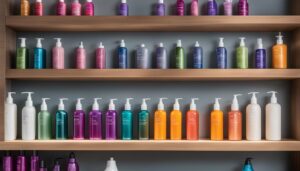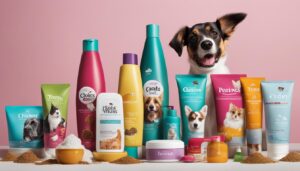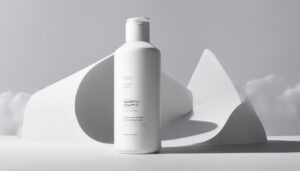Discover how cosmetic manufacturing can enhance your beauty experience while supporting sustainability and promoting healthier skin.
The Responsible Beauty Revolution
A paradigm shift is underway in the cosmetic industry, with sustainability at its heart. Firms are awakening to the importance of eco-friendly practices, propelling a responsible beauty revolution.
The beauty industry is leading a green revolution, prioritizing sustainable practices for a healthier, cleaner cosmetic future.
Joining this transformative era isn’t just trendy; it reflects a deep-seated commitment to beauty that respects both people and the planet. Stake your claim in this revolution and become a leader in crafting a healthier, cleaner cosmetic future.
Understanding Cosmetic Manufacturing
The process behind producing the beauty products we use daily is meticulous and intricate. It’s a fusion of artistry and science that crafts the formulations making us feel our best.
Various stages make up this process, including the selection of potent ingredients, formulation development, and stringent safety and quality tests.
Comprehending the science behind cosmetic production demystifies it. Only then can one grasp the complexities involved, from emulsions to serums.
In the dance between aesthetics and chemistry, we blend science with sensibility to create effective beauty formulas with sustainable attributes.
Why Responsibly Manufactured Cosmetics Matter
Consumers today are increasingly conscious of the ecological footprint their purchases leave behind. This applies especially to the cosmetics industry. An emphasis on responsibly manufactured cosmetics means considering the environmental impact at every production stage – from sourcing to distribution.
With the rise of ethical cosmetics, we’re seeing a shift towards greener and healthier futures. Every bottle of responsibly made shampoo or jar of eco-friendly cream contributes to a pollution-free environment, sparking a positive ripple effect on global well-being.
But it’s not just about the environment. Responsibly manufactured cosmetics are also better for your health. They eliminate harmful chemicals and synthetics, ensuring that what you put on your skin is as safe as it is effective.
Taken together, these factors are shaping the movement towards ethical cosmetics. In choosing responsibly manufactured beauty products, businesses and individuals alike contribute to a more sustainable, healthier future.
Embracing Sustainable Ingredients
Sustainable ingredients are pivotal to the future of cosmetics, introducing an era where beauty and responsibility coexist. They hold profound potential to revolutionize the industry, bringing the power of nature to the forefront of personal care.
- Choosing cosmetics with eco-friendly ingredients helps protect the environment and ensure product safety.
- Natural-based components in cosmetics promote skin health and overall wellness.
- Using sustainable ingredients contributes to responsible beauty and supports ethical business practices.
- Integrating natural ingredients aids in reducing harmful chemicals in cosmetic production.
- Embracing sustainable ingredients bolsters the conservation of biodiversity.
Choosing Ethical Manufacturing Partners
In the world of cosmetics, forging alliances that value sustainability is crucial. Opting for manufacturers who prioritize eco-friendly practices enables the industry’s growth while respecting the environment.
Additionally, seeking partners who embody corporate social responsibility enhances brand reputation. These enlightened business relationships foster a culture of ethical practices, setting a higher standard for the cosmetic industry.
The Role of Private Label Manufacturing
Private label manufacturing plays a pivotal role in the beauty industry, offering businesses the power to develop unique, high-quality products with controlled costs and lower risk.
As a game-changer, this approach provides a competitive edge, encouraging innovation, flexibility, and a faster route to market, revolutionizing the way cosmetic businesses operate.
What is Private Label Manufacturing?
Private label manufacturing is a strategic partnership where a company outsources the production of its beauty and personal care products to a specialized manufacturer. This process brings together the brand’s vision and the manufacturer’s industry experience and resources.
When it comes to beauty and personal care products, private label manufacturing involves the development of custom formulations, ensuring detailed quality control, regulatory compliance and delivering reliable supply chain management. It offers businesses an opportunity to focus on brand-building while leaving the complexities of product manufacturing to experts.
Benefits of Private Label Manufacturing
Private label manufacturing has emerged as a significant player in the beauty industry, aiding businesses to propel their growth while minimizing risk. This strategy provides an opportunity to maximize profits due to the high control over the product and reduced associated costs.
- More control over product attributes such as packaging, labelling, pricing, and sales.
- Reduced start-up costs as you’re buying a readymade product.
- Ability to maintain a steady supply of products, ensuring continuity in the market.
- Lesser operational and overhead expenses as you don’t have to deal with the manufacturing process.
- Flexibility to adapt to market trends and customer preferences quickly.
Finding the Right Private Label Manufacturer
Navigating the path to find the best private label cosmetic manufacturer can be a diffcult but rewarding journey. It requires thorough research, encompassing product quality, supply chain transparency, and certification status.
Crucial factors when selecting a manufacturer include their adherence to regulations, sustainable practices, and ethical sourcing. Likewise, ensure they offer flexible customization options and are capable of meeting your business needs and values.
Ensuring Responsible Practices in Private Label Manufacturing
In the private label manufacturing business, responsible practices form the linchpin of sustainability. These custom manufacturing companies have a unique opportunity, and a corporate responsibility, to set an example and lead the industry to greener practices.
- Adoption of eco-friendly manufacturing processes to minimize energy consumption and waste.
- Use of sustainable and responsibly sourced raw materials.
- Ensuring product’s safety and efficacy without compromising the environment.
- Responsible packaging – using recyclable or biodegradable materials.
- Endorsing fair trade practices in sourcing and production.
- Commitment towards cruelty-free manufacturing and not testing on animals.
Best Practices for Responsible Cosmetic Manufacturing
Responsible practices in cosmetic manufacturing are crucial for the future of beauty. Striving for transparency, using safe ingredients and minimizing waste leads to sustainable prosperity. This conscious shift does not only align with consumer demand but also helps to create a better, more thoughtful world.
The best approach to produce cosmetics in a sustainable way must involve ethical sourcing and cruelty-free testing. Adhering to Good Manufacturing Practices guarantees product compliance, safety and efficacy. Embracing these principles supports the industry’s commitment towards responsible beauty.
Prioritizing Ingredient Safety and Efficacy
With a plethora of ingredients available for cosmetics, responsible manufacturers weave through the landscape to ensure both safety and efficacy. They meticulously analyze each component to guarantee the optimal results, whilst aligning with health regulations.
Ingredient safety isn’t merely a byproduct of responsible cosmetic manufacturing – it forms its bedrock. Through rigorous testing and certification processes, companies ensure products aren’t harmful and perform as promised.
As consumers become increasingly conscious of the ingredients in their cosmetics, manufacturers have an integral role in delivering safe, effective, and transparently labeled products. Each ingredient listed on the pack, thus, becomes a testament to responsible manufacturing.
Adhering to Good Manufacturing Practices (GMP)
Good Manufacturing Practices (GMP) act as the backbone of a credible beauty brand. They insure quality control and consistency, vital for maintaining brand reputation and consumer trust.
Adhering to GMP ensures the integrity of every beauty product. It minimizes risks involved in any cosmetic production that cannot be eliminated through testing the final product.
Having GMP in place means the meticulous selection of raw material, sound processing methods, and robust quality control measures. It’s about making sure your users get only the best.
In the beauty industry, overlooking GMP is not an option. Compliance ensures your products are consistently produced and controlled according to quality standards. This protects the consumer from purchasing a product which is not effective or even dangerous.
Minimizing Environmental Impact
As responsible constructors of beauty, cosmetic manufacturers are leveraging comprehensive strategies to signficantly reduce their environmental footprint. This includes everything from utilizing renewable energy sources, designing eco-conscious products, to endorsing a zero-waste philosophy.
- Adopting sustainable packaging solutions
- Implementing energy-efficient manufacturing processes
- Practicing responsible sourcing and traceability of ingredients
- Achieving zero-waste manufacturing or recycling waste where possible
- Mitigating water usage in the production process
- Promoting plant-based and cruelty-free formulations
Promoting Fair Trade and Ethical Sourcing
Choosing fair trade and ethical sourcing can magnify your brand’s reputation. It not only signals your commitment to social responsibility but also attracts discerning consumers who value sustainability and ethics in their purchases.
In the beauty industry, ethical sourcing is a win-win practice. Besides upholding ethical standards, it ensures product quality by sourcing the best raw materials. This positions your brand advantageously in a market that continues to value responsibility and quality.
Supporting Cruelty-Free Manufacturing
Endorsing animal rights goes beyond advocacy. In the cosmetic manufacturing industry, it’s crucial to incorporate cruelty-free methods. These practices abstain from animal testing, ensuring no living creature is harmed during product development.
Cruelty-free manufacturing has a profoundly positive impact on animal welfare. By avoiding animal testing, thousands of lives are spared from unnecessary harm and suffering annually.
But it’s more than just a noble cause. Consumers today are increasingly aware and value brands that respect animal rights, standing against animal testing. Cruelty-free cosmetics augment a company’s brand image, attracting a more conscientious customer base.
Coupled with other responsible practices, cruelty-free manufacturing paves the way for a more ethical, sustainable cosmetic industry. It’s undeniable: embracing this approach enhances beauty responsibly.
The Future of Responsible Cosmetic Manufacturing
The interplay between safe cosmetics and future global health is undeniable. As we move forward, it’s essential to prioritize formulations that not only beautify but also promote wellness, paving the way for a healthier planet.
As the beauty industry evolves, we predict a surge in the demand for responsibly manufactured cosmetics. Sophisticated consumers will expect more transparency, paving the way for innovative methods for sourcing, formulating, and packaging products responsibly.
Innovations in Sustainable Packaging
Leading the way in sustainable cosmetics, revolutionary eco-designs are marking a new era in cosmetic packaging. These innovative designs not only turn heads but also reduce environmental impact, fueling the beauty industry’s shift towards sustainability. It’s a creative way to make a strong statement about environmental commitments.
Biodegradable materials are making waves in the cosmetics industry, shaking up traditional packaging methods. The move toward plant-based, compostable materials emphasizes the industry’s commitment to reducing environmental harm and redefining beauty packaging standards.
The uprising of eco-conscious cosmetics has set a new standard, where biodegradable packaging is not a luxury, but a responsibility. Companies choosing to embrace these practices are contributing towards a cleaner, healthier planet, and consumers are taking notice. Sustainability and beauty are no longer exclusive, they are intertwined.
Advancements in Clean Beauty Formulations
Toxin-free cosmetics are the heartbeat of the clean beauty movement. These products prioritize health, eliminating harmful chemicals while promoting beauty essentials that are kind to your skin and the environment.
The benefits extend beyond surface aesthetics. Toxin-free products help reduce the risk of skin irritations and allergies, fostering healthier, happier skin over time.
Natural and organic ingredients are not just buzzwords in clean beauty; they’re core elements. These materials, free from synthetic concoctions, capture the vitality of nature for an improved cosmetic experience.
Their efficiency is not to be underestimated. Studies indicate these ingredients often perform equal to or better than their synthetic counterparts, proving clean beauty is more than a trend, it’s a wellness revolution.
What processes are involved in cosmetic manufacturing?
Cosmetic manufacturing involves a series of processes that ensure the creation of high-quality beauty, skin, hair, pet, and personal care products. These processes are essential to ensure product safety, efficacy, and compliance with industry and regulatory standards. Here are some key processes involved in cosmetic manufacturing:
1. Formulation: This is the initial stage where the product concept is developed. Formulation involves selecting the right ingredients and determining their concentrations to achieve the desired product attributes. It includes thorough research, testing, and consideration of factors such as product function, stability, and safety.
2. Raw Material Sourcing: Once the formulation is finalized, sourcing high-quality raw materials becomes crucial. Manufacturers work closely with suppliers to ensure they procure safe and reliable ingredients that meet quality standards. Traceability and transparency in the sourcing process are vital to ensure product integrity.
3. Manufacturing Process: After the formulation and raw material sourcing, the actual manufacturing process begins. This involves weighing and measuring raw materials, mixing and blending them in the right proportions, and heating or cooling them as required. The process may vary depending on the product type, such as creams, lotions, serums, or shampoos.
4. Quality Control: Quality control is a critical step in cosmetic manufacturing to ensure the products meet specific standards. It involves testing the raw materials, in-process samples, and finished products for various parameters like pH, viscosity, microbial contamination, stability, and other quality attributes.
Shay labs is here to help!
Shay Labs is a trusted name in the cosmetic manufacturing industry. With years of experience and a strong commitment to quality, Shay Labs offers a wide range of private label manufacturing services for beauty, skin, hair, pet, and personal care products. Their state-of-the-art facilities and dedicated team ensure that every product is created with the utmost care and attention to detail. By choosing Shay Labs, companies can enhance their brand and bring their vision to life, all while promoting responsible and sustainable beauty practices.





